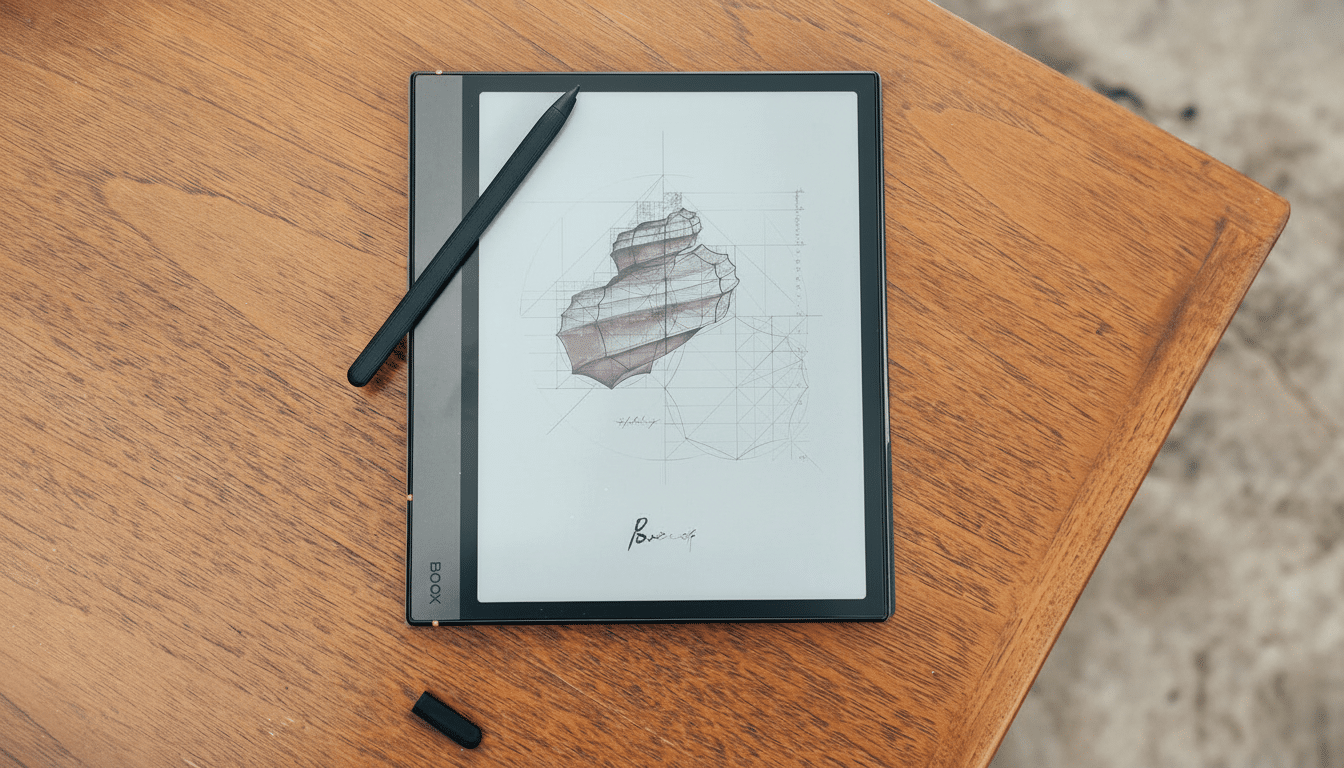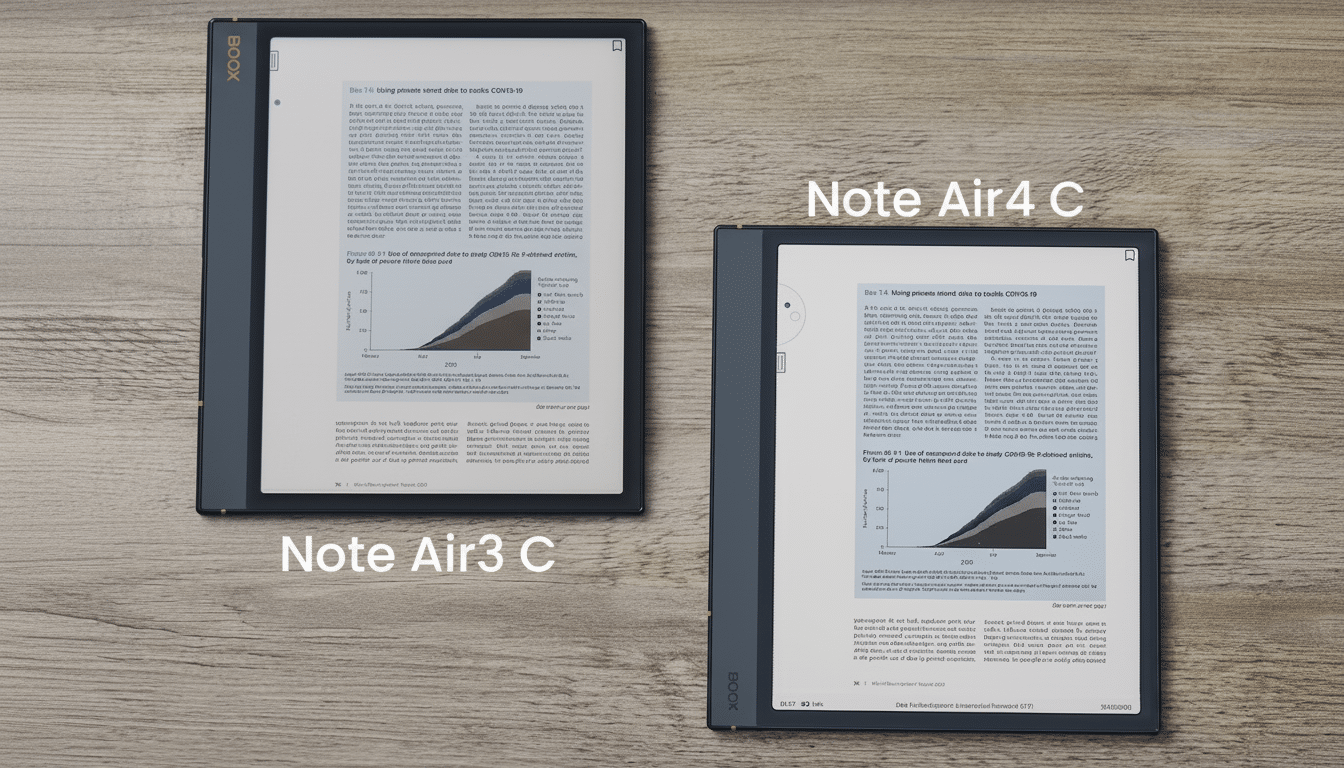BOOX’s palm-size e-paper handheld is getting ready to make a bigger leap than anyone expected: It’s getting a color screen and we’re not even talking e-ink coloring like the new Kindle Oasis, and there’s built-in cellular. In an early preview this week, it reads like an e-reader but feels increasingly like a smartphone, just minus the eye strain and the anxiety of a drained battery.
The new model retains the compact, tough build that drew fans to the Palma 2 with the Android and access to Google Play. What changes is the experience: color e-paper for richer content, and 5G connectivity so books, notes, and apps don’t have to be chained to Wi‑Fi.

Color e‑paper finally fits in your pocket
BOOX (pictured) has already fielded color panels on bigger devices like the Note Air 4C, so bringing that tech down to a pocketable slab is the headline move. Quote: Anticipate a color E Ink display of the Kaleido 3 variety — E Ink Holdings says it offers better saturation and clarity than previous generations, and that means comics and charts and maps and color‑coded notes in full color, right alongside all the crisp black-and-white resolution we’ve come to know e-paper for.
Pre-release units do exhibit occasional ghosting, not that it is anything unusual for color e-paper at phone-like sizes. Which is why BOOX are coming at this with the quick access to refresh controls and tuned display modes of a seasoned e‑ink user who swaps between speed and clarity and according to the task at hand.
That form factor is still a big part of the appeal as well. The textured back feels secure to the touch, and the device slips easily into jeans or a small sling where a 7-inch tablet won’t. This is an e-reader that exists where your phone exists, and that ubiquity means something.
Shaped like a phone, powered by Android
Also, coming with Android OS and Google Play access, a bookshelf is not anymore a bookshelf. You can black-load, Kindle, Kobo, Libby, Pocket, RSS readers, note apps and language learning tools. Unlike most surface-adjacent e-readers, it even acts like a normal handheld, just with an e-ink twist that favors focus and endurance over flashy animations.
The beauty of E‑ink is its place in workflows that prioritize reading. Static pages barely consume power and the warm and cool-tunable front light (a BOOX standard) was excellent for long reading sessions. Even with color, this is still a machine intended to prevent fatigue and distraction.
5G on e‑paper: what does it matter?
Previous Palma models were Wi‑Fi-only. This is tablet as “reader” versus phone on steriods for me.” Adding 5G, narrows said divide between “reader” and “phone.” Unboxed on a lunch break, sync on the train, pull a new title on a whim, or grab course PDFs and annotations with zero hotspot hunting. For cloud-centric users, it’s a useful improvement.

Don’t expect video streaming to be the point—e‑ink isn’t built to do that—but faster networks let app installs, dictionary downloads, and news sync happen snappily. This isn’t the first time cellular has met e-paper (Hisense shipped 5G e‑ink phones in China), but it’s unusual in a device whose chief purpose is reading. With GSMA predicting billions of 5G connects worldwide, coverage is becoming more of an assumption, not an extra.
Battery life and trade‑offs
BOOX says it’s good for multiday endurance even with the move to color and cellular. That makes sense: e‑ink only uses power during refreshes, and most reading is static. The cellular radio can be turned off or set to background sync, keeping that “charge it every few days” rhythm that makes these devices so liberating when compared with OLED phones.
Early units have very sensible software controls: buttons for display refresh toggles, performance modes for scrolling-rhythm apps, the fine-grained front-light adjustments that BOOX fans anticipate. And yes, microSD support is still a standout—space for a real pocket library at a time when plenty of phones have put expandable storage on the chopping block.
Specs and price: what to watch
We don’t yet know its final specs, but the main questions are obvious: the color of E Ink generation, how bright and uniform the front light is, what chip and RAM combination power Android smoothly and are we getting eSIM or physical SIM. Based on BOOX’s newest color devices the panels do, after all, seem to have a calibrated front light and refined refresh algorithms in the works.
Pricing will be closely watched. Previous Palma models have come in under $300; colorful options and 5G might push this one a bit higher. If BOOX can keep it in or around that price range, it presents a solid option to tiny tablets and stripped-down phones for those who prioritize reading.
Who is it for?
Readers who seek a no-frills device with the right amount of phone DNA should find a sweet spot in this product. It’s for commuters, students and readers who are multilingual and derive the most from it: color for educational materials; instant downloads on the go; and an app ecosystem that evolved to niche workflows. There’s always the option to buy a Wi‑Fi-only as to impose limits, all the more but even more humanity has just been thrown into the mix and the rest of you can now also enjoy a little bit of flexibility without losing the peacefulness of e‑ink.
If execution is anything like the promise, the Palma Color will be a few steps away from replacing your smartphone — it could be the first e-reader that makes you feel like you need to leave your smartphone in your pocket a lot more often.

